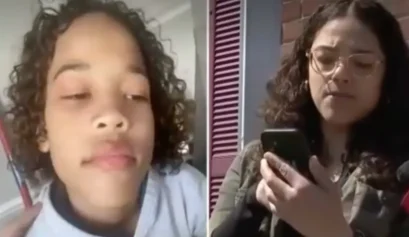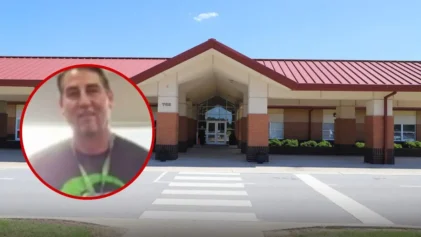It’s a historic graduation for Haley Taylor Schlitz, poised to be the youngest African-American to graduate from her law school at just 19 years old.
“It’s so exciting, it feels surreal,” the young prodigy said of her trailblazing accomplishment.
Schlitz is graduating from Southern Methodist University’s Dedman School of Law in Dallas, Texas. The 19-year-old has always been a gifted student as she graduated high school at 13 years old and earned her bachelor of science degree from Texas Woman’s University in 2017, but her journey wasn’t always a smooth one.
While in the fifth grade she wasn’t challenged enough, and that caused her to lose interest in school.
“I was pulled out of public school around fifth grade, that’s when my grades started to drop and my mom asked me what was going on and I said, I just didn’t really care about school anymore, and that was not a great answer,” Haley Schlitz said.
Schlitz says one of her early experiences with racism came when she was denied entry into the gifted program at her elementary school because she was a transfer student. She wasn’t allowed to take the test for the gifted program, but she says she saw other students being treated differently.
“There were other students testing for the gifted and talented program and they were white students and of course the school never came out and said, you’re Black so you can’t test but that’s the reality of it whether it was subconscious or conscious,” Hayley Schlitz said.
Other forms of racism that helped shape Schlitz’s passions and interests came from her classmates before she was removed from public school.
“We were doing a lesson on slavery — so surely you can imagine where this is going — and there were other students who would turn to look at me and say, I would own you if we lived back then, completely inappropriate, and unnecessary. Then we were doing a play on the War of Northern Aggression [the Civil War], and they decided to make me the mulatto slave girl in the play as the only Black girl in the class,” Schlitz said.
“It took everything in me to not completely lose it, but I did professionally talk to the principal and the teacher,” Hayley’s father, William Schlitz, said of his daughter’s treatment in her public school classrooms.
William Schlitz says his daughter’s experiences with racism contributed to her being homeschooled, where she excelled. William Schlitz, a public relations professional and his wife, a physician, says all three of their children are doing well academically.
“Ian is 16 and getting his MBA at Tarleton State University, and our 13-year-old is a sophomore at Texas Woman’s University,” William Schlitz said of his children.
Hayley Schlitz says the big difference between homeschooling and public school are the classes and activities she and her siblings took were tailored to their individual learning styles.
She says the learning environment at home was free of teachers who didn’t believe in them or being labeled a bad student. Neither did they feel pressure from discrimination because of their hair or style of clothing they wore.
Despite learning from home, Hayley’s bout with racial inequities in public school stuck with her and caused her to change her career focus from chemistry to education and law.
“I changed my major to education then I graduated with a bachelor’s of science, and now I’m in law school because I like to think about it as I can change the system from the inside, one student at a time, being a teacher, being a good teacher and seeing all the potential in all the students,” she said.
Although law school tested her perseverance, Schlitz didn’t give up and now is making history upon her graduation. She plans to use her degrees to work in either education policy or become a schoolteacher.
Either way, she wants to specifically look out for Black and brown students to ensure their education experiences are fair and free of racism and biases. She wants to do as much as she can help mitigate those negative experiences felt by many students of color.
“The one thing I think she will do for sure is she will help reset the discussion for the potential of our children, all of our children,” William Schlitz said.
“The goal is to impact as many students of color as I can so when I’m looking into teaching, I’m looking at schools with a high percentage of diversity in general, students of color, Black students, Hispanic students,” Hayley said.


